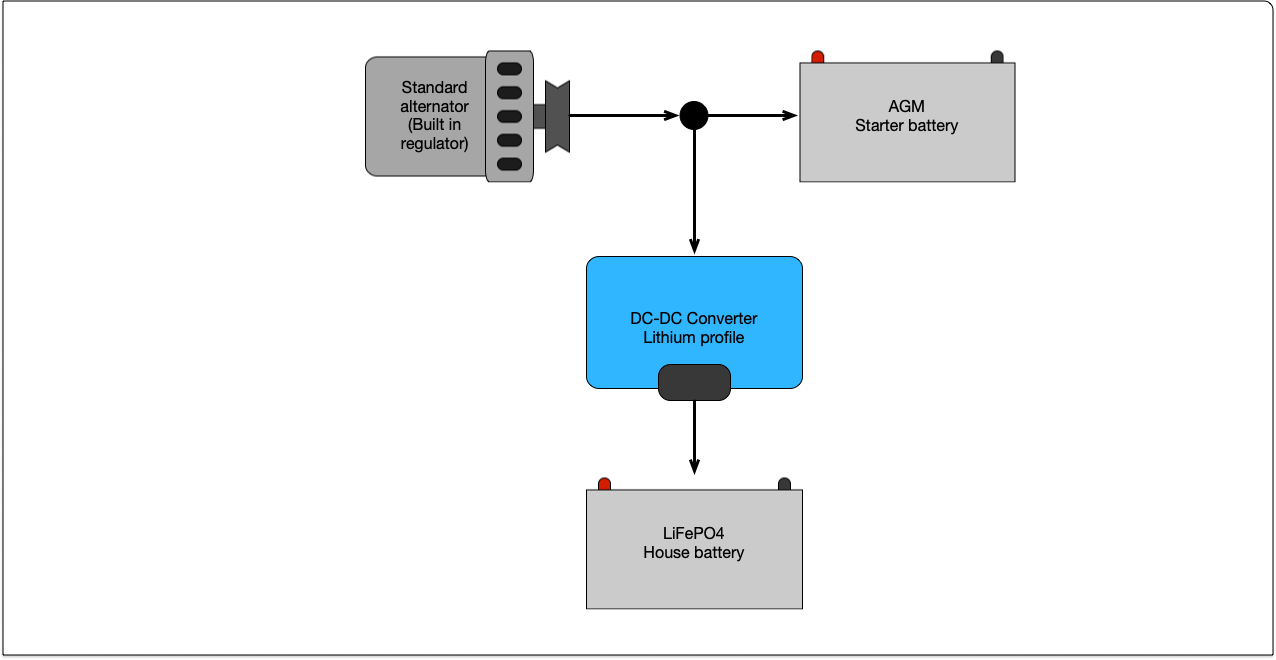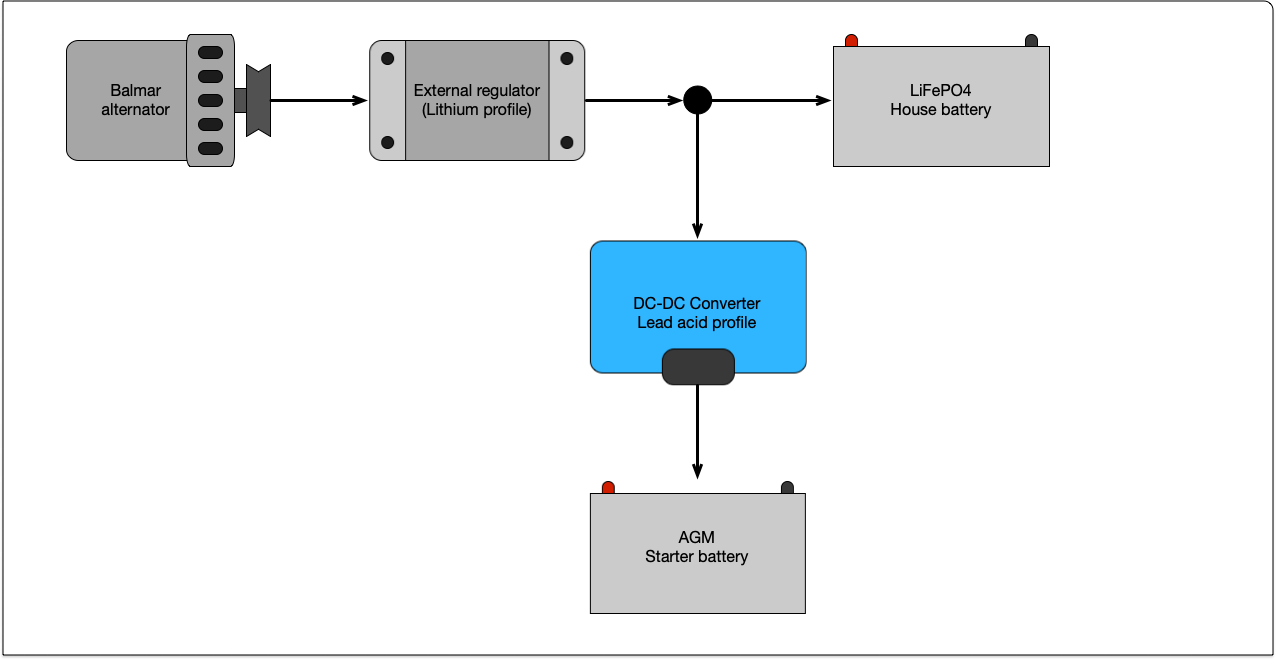I am planning to replace my Volvo standard alternator (which has a built in regulator) with a Balmar model and an external regulator. My current set up is shown in the first diagram. This works, but has the disadvantage that the lithium charging is limited to the output of the DC-DC converter.

Is there any reason why I cannot re-arrange the components to use the DC-DC converter to charge the starter battery instead (see second diagram)? My reasoning is the output of the DC-DC converter is more than adequate to replace the entry used for starting.

